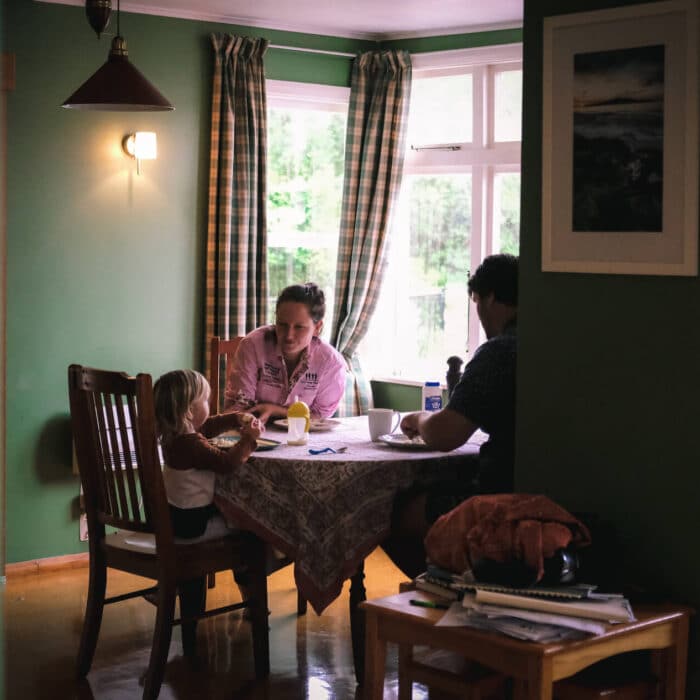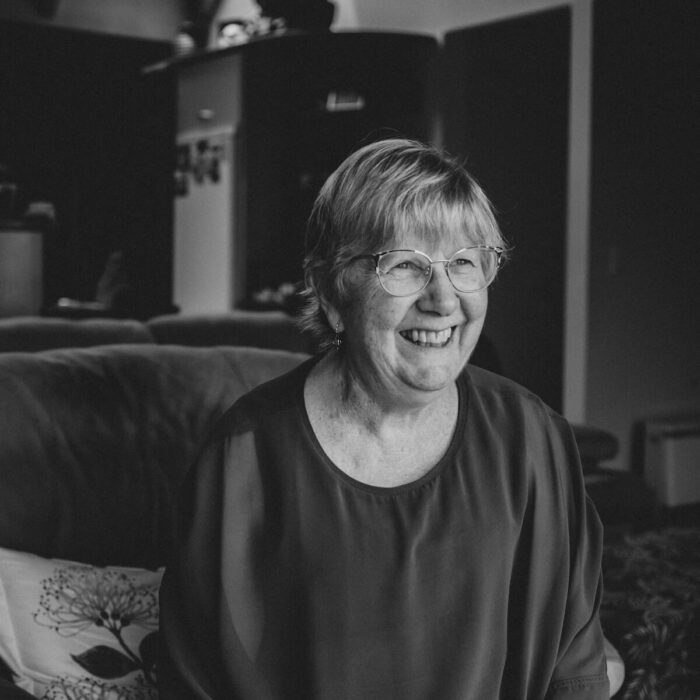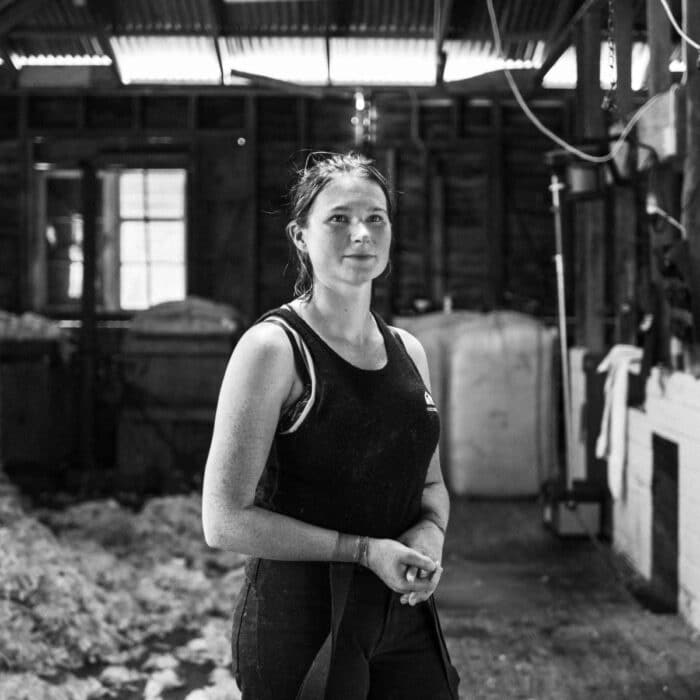22 June 2022
At Home on Gorge River
writer & photographer: Francine Boer
Kei te Koraha. Off the Beaten Track.
A bright orange windsock pops out of the bush. It marks the location of Catherine Stewart’s home and New Zealand’s most remote family. Together with her husband Robert “Beansprout” Long, Catherine has lived in this remote corner of the West Coast for the past forty years. To get there, my partner James and I tramp for hours over small rocks, past Bonar Knob, lost buoys, the odd seal skull and 43 kilometres of beaches and bush. Finally, after crossing the Gorge River with its strong current, Catherine and Robert welcome us into their home.

It's easy to feel an instant connection to Catherine, who is characterised by a friendly nature, warm smiles and interesting thoughts. Besides being a caring mother and a keen tramper with a Bachelor of Science, conservation is an inevitable interest of the family. "As conservation became a passion, it was passed on to the kids as part of what we do," Catherine explains.
Life on Gorge River certainly has its challenges, not least of all living off-grid and being a two-day walk from civilisation – a walk that turned into five days when the kids, Christan and Robin, were little. “I guess I was able to think differently, or I would never have managed to live here,” Catherine tells me. “But it certainly was not in my character to go along with being told that I had to. The first few years involved huge adjustments, not all of which I appreciated at the time.”
Catherine’s home is a cosy place, filled with natural elements and beautiful artwork. Catherine and Robert take the time to chat with us, and it’s easy to have interesting conversations with them.
An abundance of veggies surround Catherine and Robert's house. "These veggies feed us year-round and can stand the salty air," Catherine says. "Beetroot actually like salt so they grow out by the front fence. The apple tree didn't, and had to be shifted. Broad beans don't like blowing around in the wind, so Robert plants them further back where they are sheltered. Otherwise, we grow carrots, potatoes, silverbeet, peas, various brassicas, salad greens and swedes. This year has been a really good hot season so Robert has grown a few small - but almost proper - corn cobs and the apples on the tree might actually ripen for the first time."
Catherine first laid her eyes upon Robert at a Canterbury music festival in 1987. Three years later, after travelling overseas and some monthly visits, Catherine moved in with Robert, who had already made Gorge River his home. The view from their window is impressive. High waves aim for the shore as they go around a big rocky "mountain" in the middle of the ocean.
She reminisces about the days before there was any phone reception. "We would get our groceries delivered by aeroplane, handing the pilot our shopping list for the next visit. If we forgot something we'd go without, or we could give a shopping list to a tramper that would be posted to the pilot. At that time our only way of communication was a beacon."
"I have never promised more than a year or two ahead, but so far, I still choose to be here," Catherine tells me. "I like to get out for a break more often and to see the kids, but it doesn't take long to ensure I appreciate being here when I get home. The idea of having to move out of here is quite daunting and will only get harder. Robert wants to be here until it becomes impossible to keep doing it."





The possum skins are handmade into beautiful throws, pillows and hats that Catherine sells online. "Christan bought me this beautiful old sewing machine," she says, sitting down behind it. "Together we figured out how it worked. He made cushions, scarves and a throw while he was at school in Wānaka. When he moved on to bigger things, I took over the job. He cut a pattern from an old aviator hat to make in possum fur and has worn it in the Arctic and Antarctic. Now I keep him supplied, and he sells them wherever he goes as well as online."



This story is part of THREAD, a year-long project by Shepherdess made possible thanks to the Public Interest Journalism Fund through NZ On Air.
If you enjoyed this story, please share with someone else.
This story appeared in the Takurua Winter 2022 Edition of Shepherdess.
Get your hands on a copy.



